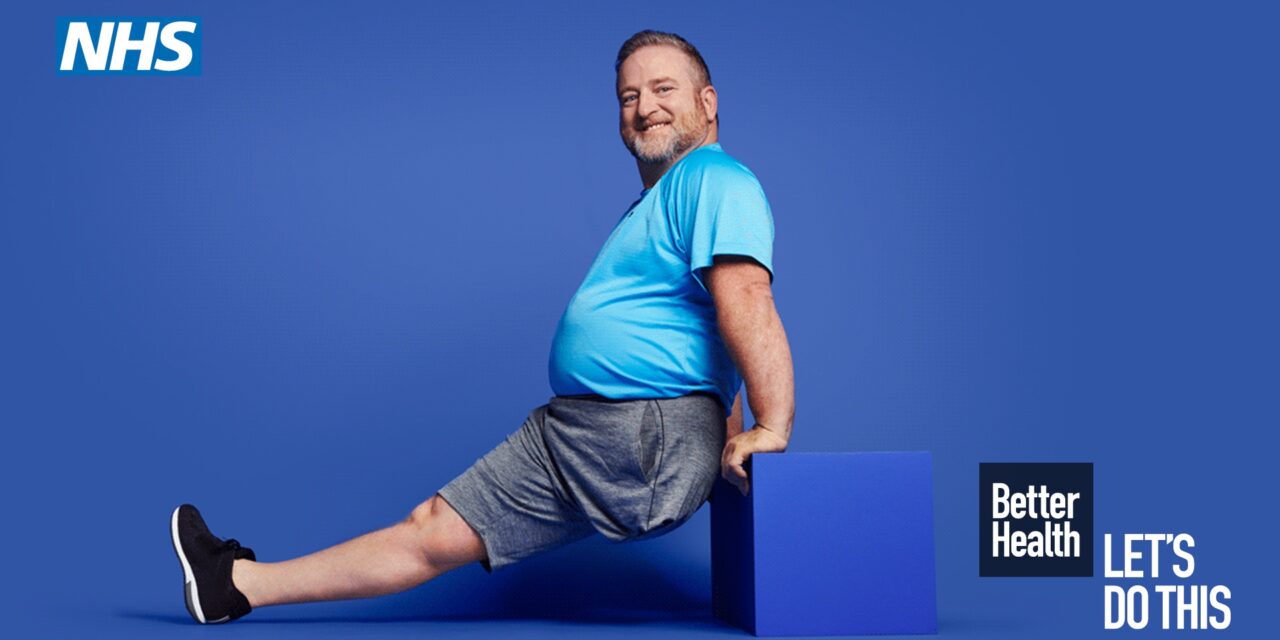Halton Borough Council is supporting a national drive to kick-start the nation’s health
Public Health England launched a major new adult health campaign to seize the opportunity for what is called a national ‘reset’ moment. https://www.nhs.uk/better-health/
COVID-19 has affected the whole country; for almost everyone, life has had to fundamentally change. But it has also prompted many people to reflect and think more seriously about their health.
What’s more, people have been surprised by how able they have been to change their behaviour, with lockdown showing many that they are able to make and sustain changes to their lives.
The Better Health campaign kicked off by supporting individuals on their weight loss journey, but, later down the line, will also provide advice and support for quitting smoking, drinking less and looking after your mental health.
Nearly two thirds (63%) of adults in the UK are overweight or living with obesity1. Gaining weight is often a gradual process that takes place over a number of years and modern life doesn’t always make it easy.
But this extra weight causes pressure to build up around vital organs, making it harder for the body to fight against diseases like cancer, heart disease and now COVID-19.
Halton Borough Council’s Executive Board Member for Sport. Cllr Phil Harris, said: “By reducing your weight within a healthy range, you can help cut your risk of being critically ill with COVID-19. To improve health and wellbeing, individuals should aim to have a BMI below 25 and above 18.52.
“The National Institute for Health and Care Excellence (NICE) recommends that Black, Asian and minority ethnic groups (BAME) should aim to have a BMI below 23 and above 18.5 to avoid risks to health.”
To support people to live healthier lives, the brand-new Better Health webpage is available at nhs.uk/BetterHealth. It provides tools to help people manage their weight loss – from checking their BMI, to getting access to free support tools.
For ideas see. https://www.facebook.com/Walking-for-Health-Halton-482818178431169/
https://www.facebook.com/haltonsportdev/
https://twitter.com/haltonsportsdev
https://twitter.com/HaltonGetActive
FACTS AND STATS
Overweight and obesity stats
• Six in 10 (63%) adults in England are above a healthy weight, with 36% of adults being overweight and 27% living with obesity1
• Almost seven out of 10 men are overweight or living with obesity (67%) and six out of 10 women are overweight or living with obesity (60%)1
• One out of four men is living with obesity (26%) and almost one out of three women is living with obesity (29%)1
• 76% of men aged 45-54 years are overweight or living with obesity, this increases to 82% for men aged 55-64 years1
• 64% of women aged 45-54 years are overweight or living with obesity, this increases to 66% for women aged 55-64 years1
• 34% of men and 48% of women have a very high waist measurement, indicating central obesity1
• 2% of men and 4% of women are living with severe obesity (BMI ≥40kg/m2)1
• Since 1993-95 the prevalence of severe obesity has risen 7-fold for men (0.3% to 2.1%) and 2.9-fold for women (1.5% to 4.3%)6
Prevalence of overweight and obesity in BAME groups
• The Active Lives Survey (2017/18) found that approximately 73% of Black adults were living with obesity, compared to 63% white British adults and 57% Asian adults7
• Health Survey for England data indicates that 8.3% of Black females are morbidly obese compared to 4% of White females. For men, the prevalence amongst White and Black men is similar 2.4% and 2.3% respectively8
Physical Activity
• Over 1 in 3 (34%) men and almost half (42%) of women are not active enough for good health, by not doing at least 150 minutes of moderate intensity activity each week2
• People in lower socioeconomic groups are more likely to not be active enough for their health, with half (50%) of the most deprived 20% of the population not achieving guidelines compared to around 1 in 3 (32%) of the least deprived 20% (based on quintiles of Index of Multiple Deprivation)2
• Physical activity declines with age, with over 2 in 3 (67%) adults aged 19 to 64 years achieving 150 minutes of moderate intensity physical activity per week compared to less than half (44%) of adults aged 65 and over2
Health harms
• Obesity reduces life expectancy by an average of 4.2 years for men and 3.5 years for women9
• 90% of adults with type 2 diabetes aged 16-54 years are overweight or living with obesity10
8
• In England, adults living with obesity are 5 times more likely to be diagnosed with type 2 diabetes than those who are a healthy weight (a body mass index between 18.5 and 25)10
• 43% of adults aged 16 and over had at least one longstanding medical condition1
• More than half of adults (56%) are at increased, high or very high risk of chronic disease due to their waist circumference and BMI10
• In the Global Burden of Disease Study (GBD) 2016, obesity and smoking were the leading risk factors for morbidity11. Analysis of the study demonstrated that these are associated with many of the most common causes of death including cardiovascular disease, musculoskeletal conditions, respiratory disease, diabetes and most cancers11
COVID-19
• People living with obesity are twice as likely to be hospitalised with COVID-194
• Current evidence suggests that COVID-19 patients living with obesity, and in particular morbid obesity, may be more likely to be admitted to intensive care; require advanced treatment; and potentially have poorer outcomes, including greater risk of mortality5
• Data from intensive care audit weekly reports, which detail adult intensive care, indicates that 7% of those in intensive care are morbidly obese – this is twice the rates of morbid obesity in the population as a whole12
• An NHSE report on diabetes and COVID-19 found that deaths in people with diabetes in England have more than doubled during the COVID-19 epidemic13
• The same report found that hyperglycaemia and obesity in both Type 1 and Type 2 diabetes were independently associated with increased COVID-19 mortality. It was also found that risk factor control could reduce the impact of COVID-19 in diabetes13
• The OpenSAFELY report, which looked into factors associated with COVID-19-related hospital death in the records of 17 million adult NHS patients, found that most comorbidities studied were associated with increased risk of COVID-19, including cardiovascular disease, diabetes, respiratory disease including asthma, obesity, history of haematological malignancy or recent other cancer, kidney, liver, neurological and autoimmune conditions14
• International studies have found that obesity-related conditions seem to worsen the effect of COVID-19; the Centres for Disease Control and Prevention (CDC) reported that people with heart disease and diabetes are at higher risk of COVID-19 complications15
• The largest number of patients in critical care are from age groups between 50 and 70 for both males and females, and only small numbers aged over 80. When compared to all-cause mortality in previous years, deaths from COVID-19 have a slightly older age distribution, particularly for males16
• Between the ages of 40 to 79, the age specific death rates from COVID-19 among males were around double the rates in females compared with 1.5 times for all causes mortality in previous years16
• An analysis of survival among confirmed COVID-19 cases shows that, after accounting for the effect of sex, age, deprivation and region, people of Bangladeshi ethnicity had around twice the risk of death

